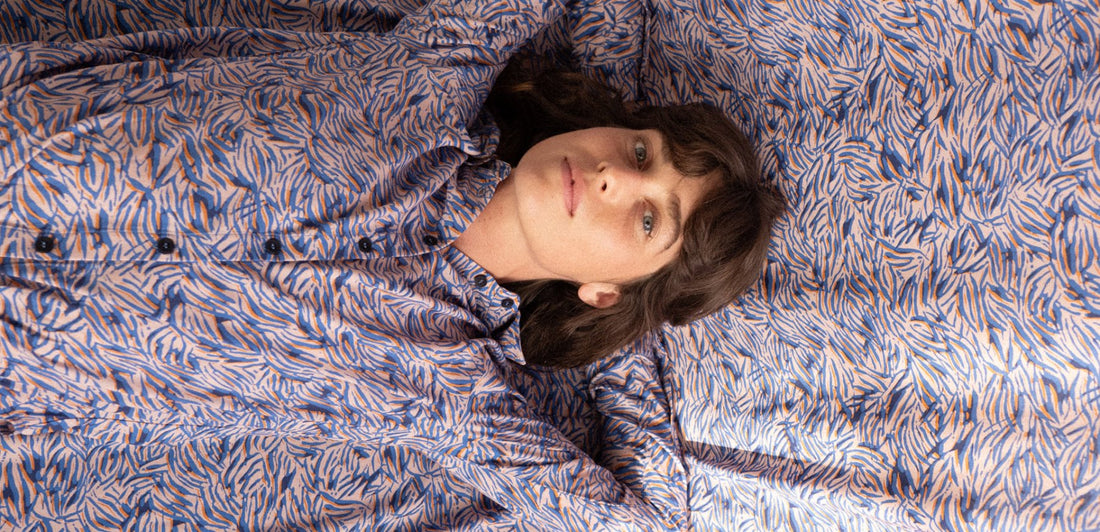The impact of the fashion industry is staggering, while countless human rights disasters have pointed to fatal flaws in the way fast fashion is run. Consumers now have the power to make a positive change by supporting ethical clothing brands. These brands prioritise sustainability, fair labour practices, and social responsibility. But with so many options out there, how do we know which brands are truly ethical and which ones are just jumping on the bandwagon? In this article, we'll explore what to look for in ethical clothing brands, so you can shop with purpose. We’ll also home in on a little-known material that can make all the difference to your fashion footprint, LENZING™ ECOVERO™ Viscose.
Transparency
Ethical clothing brands should be transparent about their supply chain. Look for brands that openly share information about where their materials come from and where their products are manufactured. A truly ethical brand will provide details about their suppliers, production facilities, and any third-party certifications they have obtained. Transparent supply chains ensure that products are made under humane working conditions and observing environmental regulations.
See our Eco page to learn more about TWOTHIRDS’ approach, and consult our annual Eco Reports to learn how we’re achieving greater supply chain transparency.
Sustainable Materials Like LENZING™ ECOVERO™ Viscose

Chances are you’ll choose ethical clothing brands based on the materials they use. But not all sustainable materials were created equally. LENZING™ ECOVERO™ Viscose is both ethical and sustainable because it involves reduced emissions, safe handling of chemicals, and the use of sustainably managed forests.
What is ECOVERO™ Viscose?
A semi-synthetic fiber made from trees! LENZING™ ECOVERO™ viscose is the eco-friendly equivalent of viscose. Based in Austria, Lenzing AG produces the fiber using wood from controlled sources which are certified to Forest Stewardship Council (FCS) or Program for Endorsement of Forest Certification Schemes (PEFCS) standards. According to Good On You, more than 60% of the trees used come from Austria and Bavaria to generate lower emissions.
To make viscose you need to break wood down into pulp before processing it into fibers. In keeping with Lenzing’s innovative nature, their chemicals are recovered and used many times over - which itself results in 50% lower emissions and saves half the energy and water versus regular viscose production. LENZING™ ECOVERO™ Viscose is made within a highly ethical closed loop system.
Meanwhile, regular viscose is not nearly as ethical. It is tied to deforestation, and the chemicals that are used in production facilities can have a severe impact on workers’ health. Lenzing, on the other hand, prevent the release of any potentially harmful toxic gases.
LENZING™ ECOVERO™ Viscose therefore allows us to enjoy the smooth, soft, and low-cost attributes of viscose at the exclusion of these impacts on workers, environment, and atmosphere.
Fair Wages and Good Labour Conditions
A key aspect of ethical clothing brands is their commitment to fair wages and safe labour conditions for all workers involved in their production system. Look for brands that pay their workers a living wage, ensure safe working conditions, and prohibit child labour.
TWOTHIRDS produces in Northern Portugal to ensure its garment workers are paid a minimum living wage and that EU labour standards are adhered to. We work closely with our partner factories, carrying out frequent site visits to strengthen relationships and ensure that we know who makes our garments.
Cruelty-Free and Vegan Options

If animal welfare is important to you, seek out brands that are cruelty-free and offer vegan alternatives. Ethical clothing brands should avoid using materials derived from animals, such as fur, leather, and down feathers, which are often associated with unethical practices. Instead, they should opt for innovative and sustainable alternatives, like faux leather and recycled synthetic materials.
This facet of ethical shopping is also what makes LENZING™ ECOVERO™ Viscose a great choice for conscious consumers. It has botanic origins, meaning that it comes from plants rather than animals and is therefore completely vegan. The sustainable production process behind LENZING™ ECOVERO™ Viscose can also be deemed environmentally responsible, because water is recycled and cleaned before being returned to aquatic systems.
Minimising Waste
The fashion industry is notorious for its waste, but ethical clothing brands are striving to change that. Look for brands that incorporate circular economy principles by designing products for longevity and facilitating recycling programs for old garments.
TWOTHIRDS waste reduction policy is notable. We release all new products on PRE-ORDER so as to estimate the correct amount of garments we need to produce, avoiding overproduction and running in a more efficient manner than fast fashion.
Ethical Packaging
Consider the packaging used by the brand. Ethical clothing companies should aim to minimise packaging waste and use eco-friendly materials. Look for brands that use recycled or biodegradable packaging and avoid excessive use of virgin plastic.
Longevity and Timeless Designs
Ethical fashion is not just about the production process; it's also about the designs. Look for brands that create timeless, high-quality pieces that won't go out of style quickly. By investing in long-lasting clothing, you reduce the need for frequent replacements and contribute to a more sustainable fashion industry.
This point very much chimes in with TWOTHIRDS scandinavian simplicity and determination to produce garments that endure. Our use of LENZING™ ECOVERO™ viscose also supports this, because it results in garments that have a unique touch and story behind them. Once you know the work and effort that has gone into the production of even the fibre at the heart of a garment, you’re much more likely to value it. Just take a look at a few of the LENZING™ ECOVERO™ viscose garments that we have placed throughout this piece!
LENZING™ ECOVERO™ viscose offers the appearance of luxury without so many harmful side effects, making it an excellent tool in the ethical fashion armoury.
In conclusion, shopping ethically is an empowering way to make a positive impact on the fashion industry. By looking for brands that prioritise transparency, sustainability, fair labour practices, and social responsibility, you can support a more ethical and sustainable future. Every purchase we make is a choice, and with the right information, we can make a difference and contribute to a more conscious and compassionate fashion industry.
LENZING™ and ECOVERO™ are trademarks of Lenzing AG.









